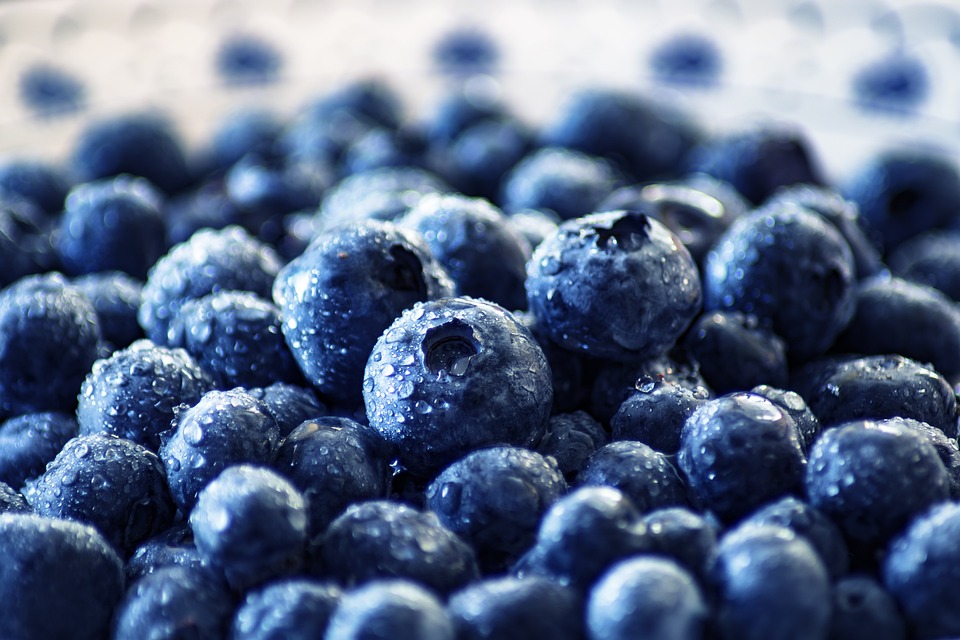Introduction
After undergoing gastric sleeve surgery, it is important to make significant changes to your diet in order to promote healing and achieve long-term weight loss success. This article will guide you through the process of planning and preparing meals after gastric sleeve surgery, ensuring that you are able to nourish your body while still enjoying delicious and satisfying food. We understand that this can be a challenging transition, but with the right knowledge and approach, you can create a healthy and enjoyable eating routine.
Understanding Your New Dietary Needs
Following gastric sleeve surgery, your stomach size is significantly reduced. This means that you will need to adjust your portion sizes and choose nutrient-dense foods to meet your body’s nutritional requirements. It is crucial to consume adequate protein, vitamins, and minerals while minimizing the intake of empty calories and processed foods. By doing so, you will not only support your body’s healing process but also ensure long-term weight loss success.
Protein-Rich Meal Options
Protein is an essential nutrient that plays a vital role in post-surgery healing and muscle maintenance. Incorporating protein-rich foods into your meals is crucial. Some excellent sources of protein include lean meats, poultry, fish, eggs, Greek yogurt, cottage cheese, and legumes. You can create delicious meals by combining these protein sources with vegetables and whole grains. For example, a grilled chicken breast with a side of roasted vegetables and quinoa is a satisfying and nutritious option.
Vegetarian and Vegan Options
If you follow a vegetarian or vegan diet, you can still meet your protein needs after gastric sleeve surgery. Plant-based protein sources such as tofu, tempeh, seitan, lentils, chickpeas, and quinoa can be incorporated into your meals. You can create flavorful dishes like vegetable stir-fries with tofu, lentil curry, or chickpea salads. It is important to consult with a registered dietitian to ensure you are meeting all your nutritional needs, especially after undergoing gastric sleeve surgery.
Healthy Carbohydrate Choices
Carbohydrates are an important energy source, but it is essential to choose complex carbohydrates that provide sustained energy and fiber. Whole grains like brown rice, quinoa, whole wheat bread, and oats are excellent options. These grains are rich in fiber and essential nutrients, helping you feel fuller for longer and supporting healthy digestion. Incorporate these carbohydrates into your meals by pairing them with lean proteins and vegetables, such as a grilled salmon with a side of quinoa and steamed broccoli.
Meal Planning and Portion Control
Meal planning and portion control are crucial aspects of maintaining a healthy diet after gastric sleeve surgery. Planning your meals in advance can help you make better choices and avoid impulsive, unhealthy options. Aim for a balanced plate with half of it filled with non-starchy vegetables, one-fourth with lean protein, and one-fourth with healthy carbohydrates. This way, you can ensure that you are consuming a variety of nutrients while keeping portion sizes in check.
conclusion
Transitioning to a new eating routine after gastric sleeve surgery may feel overwhelming at first, but with proper planning and a focus on nutrient-dense meals, you can achieve long-term success. Remember to prioritize protein, choose healthy carbohydrates, and incorporate a variety of vegetables into your meals. Consult with a registered dietitian to create a personalized meal plan that meets your specific dietary needs. By adopting a mindful and balanced approach to your meals, you can nourish your body, promote healing, and achieve your weight loss goals.
Common Inquiries Concerning Meals After Gastric Sleeve
1. What are some general guidelines for meals after gastric sleeve surgery?
After gastric sleeve surgery, it is important to follow certain guidelines to ensure a successful recovery and long-term weight loss. Here are some general guidelines for meals after gastric sleeve surgery:
– Eat small, frequent meals: Your stomach capacity will be significantly reduced after the surgery, so it is important to eat smaller portions throughout the day. Aim for 4-6 small meals or snacks instead of 3 large meals.
– Focus on protein: Protein is crucial for healing and maintaining muscle mass. Make sure to include lean sources of protein in each meal, such as chicken, fish, tofu, eggs, or Greek yogurt.
– Stay hydrated: It is important to drink plenty of fluids throughout the day to stay hydrated. However, avoid drinking with meals, as this can fill up your stomach quickly and prevent you from consuming enough nutrients. Aim to drink fluids between meals.
Most important information:
1. Eat small, frequent meals.
2. Focus on protein-rich foods.
3. Stay hydrated, but avoid drinking with meals.
2. What are some recommended foods to include in meals after gastric sleeve surgery?
Choosing the right foods after gastric sleeve surgery is essential for meeting your nutritional needs and promoting weight loss. Here are some recommended foods to include in your meals:
– Lean proteins: Opt for lean sources of protein, such as skinless chicken or turkey, fish, lean cuts of beef or pork, tofu, eggs, and low-fat dairy products. These provide essential amino acids and help keep you feeling full.
– Non-starchy vegetables: Fill your plate with colorful, non-starchy vegetables like broccoli, spinach, cauliflower, bell peppers, and zucchini. These are low in calories and high in fiber, vitamins, and minerals.
– Whole grains: Include small portions of whole grains like quinoa, brown rice, whole wheat bread, or whole grain pasta. These provide sustained energy and fiber.
Most important information:
1. Choose lean sources of protein.
2. Include non-starchy vegetables in your meals.
3. Opt for small portions of whole grains.
3. Are there any foods to avoid after gastric sleeve surgery?
While there are no strict rules on what you should completely avoid after gastric sleeve surgery, there are certain foods that may hinder your weight loss progress or cause discomfort. Here are some foods to be cautious of:
– High-calorie, low-nutrient foods: Avoid foods that are high in calories but low in nutritional value, such as sugary snacks, sodas, fried foods, and processed snacks. These can contribute to weight regain and hinder your weight loss goals.
– Carbonated beverages: Carbonated beverages, including soda and sparkling water, can cause discomfort and bloating due to the gas they contain. It is best to avoid these during the initial stages of your recovery.
– Tough or fibrous meats: Initially, after surgery, it is recommended to avoid tough or fibrous meats, such as steak or pork chops. These can be difficult to digest and may cause discomfort.
Most important information:
1. Avoid high-calorie, low-nutrient foods.
2. Limit or avoid carbonated beverages.
3. Be cautious of tough or fibrous meats.
4. How can I ensure I am getting enough nutrients after gastric sleeve surgery?
Getting adequate nutrients is crucial after gastric sleeve surgery to support healing and prevent nutrient deficiencies. Here are some tips to ensure you are getting enough nutrients:
– Take a daily multivitamin: Your doctor may recommend a specific multivitamin that meets your nutritional needs. This can help you meet your daily requirements of vitamins and minerals.
– Follow a balanced meal plan: Work with a registered dietitian to develop a meal plan that meets your specific needs. This will help ensure you are consuming enough protein, vitamins, and minerals.
– Consider protein supplements: If you are struggling to meet your protein needs through food alone, your doctor may recommend protein supplements or shakes to help you meet your daily requirements.
Most important information:
1. Take a daily multivitamin.
2. Follow a balanced meal plan.
3. Consider protein supplements if needed.
5. How can I manage portion control after gastric sleeve surgery?
Portion control plays a crucial role in weight loss after gastric sleeve surgery. Here are some strategies to help you manage portion control:
– Use smaller plates and bowls: Using smaller plates and bowls can help visually trick your mind into thinking you are eating more than you actually are. This can help you control your portions and prevent overeating.
– Chew thoroughly and eat slowly: Take your time to chew your food thoroughly and eat slowly. This allows your brain to register feelings of fullness, preventing you from overeating.
– Listen to your body’s hunger and fullness cues: Pay attention to your body’s signals of hunger and fullness. Eat when you are physically hungry and stop when you are comfortably full.
Most important information:
1. Use smaller plates and bowls.
2. Chew your food thoroughly and eat slowly.
3. Listen to your body’s hunger and fullness cues.
Wrong Assumptions About Meals After Gastric Sleeve
1. Meals after gastric sleeve must always be small portions
One common Misconception about meals after gastric sleeve surgery is that they must always consist of small portions. While it is true that the surgery reduces the size of the stomach, allowing for smaller amounts of food to be consumed, it does not mean that every meal must be tiny. The key is to focus on nutrient-dense foods that provide the necessary vitamins and minerals without exceeding the capacity of the new stomach.
2. Meals after gastric sleeve are limited to only certain foods
Another misconception is that meals after gastric sleeve must be limited to only a few specific types of food. While it is important to avoid high-calorie and high-sugar foods, there is still a wide range of options available. A balanced diet that includes lean proteins, fruits, vegetables, whole grains, and healthy fats can still be enjoyed after the surgery. It is crucial to consult with a registered dietitian to create a personalized meal plan that meets individual nutritional needs.
3. Meals after gastric sleeve do not require planning
Some individuals believe that meals after gastric sleeve surgery do not require careful planning since the stomach capacity is reduced. However, planning meals becomes even more important after the surgery to ensure that the body receives all the necessary nutrients. It is essential to have a well-balanced diet that includes protein, fiber, vitamins, and minerals. Prioritizing nutrient-rich foods and avoiding empty calories is crucial for maintaining good health and achieving weight loss goals.
4. Meals after gastric sleeve can be eaten quickly
Many people assume that meals after gastric sleeve surgery can be consumed quickly, as the stomach size is reduced. However, it is important to eat slowly and mindfully to avoid discomfort and promote proper digestion. Eating too quickly can lead to overeating and stretching of the stomach pouch, which can hinder weight loss and potentially cause complications. Chewing food thoroughly and taking the time to savor each bite helps with portion control and digestion.
5. Meals after gastric sleeve can be high in liquid calories
A common misconception is that meals after gastric sleeve can include high-calorie liquids without affecting weight loss. While liquids are generally tolerated well after the surgery, it is crucial to choose low-calorie options to avoid sabotaging weight loss efforts. Liquids such as sugary drinks, fruit juices, and smoothies can be high in calories and should be consumed in moderation. Opting for water, unsweetened tea, and protein shakes can provide hydration and necessary nutrients without adding excessive calories to the diet.
Meals After Gastric Sleeve
#undergoing #gastric #sleeve #surgery #important #follow #specific #diet #plan #aid #recovery #promote #weight #loss #meal #ideas #suitable #postgastric #sleeve #diet

